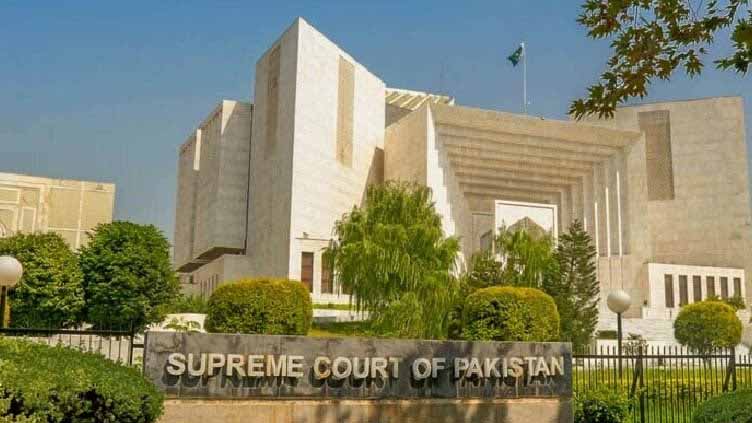A constitutional bench challenges military courts’ legality.

Justice Jamal Mandokhail questioned Khawaja Haris, the Ministry of Defense’s attorney, during the hearing of intra-court appeals against the Supreme Court’s (SC) ruling on civilian trials in military tribunals, on whether or not military courts can truly be regarded as “courts.”
The intra-court challenges against the decision permitting civilian trials in military courts were heard by a seven-member constitutional bench presided over by Justice Aminuddin Khan.
As he started his rebuttal arguments, Khawaja Haris, speaking on behalf of the Ministry of Defence, said he had written answers to the issues posed to him. He insisted that there was no question that military courts, which were created by law, carry out fair trials.
He added that the Supreme Court had ruled in the Liaquat Hussain case that civilians could be tried in military tribunals and that the trials in military courts adhere to established protocols and guarantee fair trials. To guarantee full justice, officers in military courts take official oaths.
The sole article that gave courts legitimacy, according to Justice Mandokhail, was Article 175; he suggested that Haris study it.
Haris retorted that the court had ruled that court-martials are not covered by Article 175 in the Mehroom Ali and Liaquat Hussain instances. Military tribunals are exempt from Article 175 even in the ruling that is now being appealed.
The Federal Legislative List gives the federal government the power to enact laws under Article 142.
Furthermore, he contended that the federal government had used this very ability to pass laws pertaining to military tribunals, and that these laws and authority had existed even under the 1956 and 1962 constitutions—during a period before the existence of Article 175 and the 1973 Constitution.
The question of whether military courts qualify as real courts was raised by Justice Mandokhail once more. If so, a review of Article 175 is necessary. Military courts, Haris retorted, were courts with the unique authority to hold criminal cases.
Haris was instructed by the constitutional bench to finish his argument by tomorrow.
According to Justice Aminuddin, the bench would not be accessible before the 28th, thus the hearing will be postponed after tomorrow. On the 28th, the Attorney General is scheduled to start his arguments.
Haris was asked by Justice Aminuddin how much more time he required. Haris said that he would require an additional 30 to 40 minutes to address the queries posed by Justices Musarrat Hilali and Mandokhail.
Justice Musarrat Hilali said she would remove her queries if they were the problem.
Justice Mandokhail enquired about the AG’s position and whereabouts.
The attorney general would require two or three more days, the supplementary attorney general responded.
Frustrated, Justice Mandokhail remarked, “What kind of joke is this? Why are you prolonging the case needlessly? Is it not intended to be finished? “The attorney general himself had stated that he would only require ten minutes—it was just about discussing the right to appeal,” Justice Hilali continued.
According to Aamir Rehman, Haris represented the federation outside of court orders, and the attorney general only attended when required to do so.
“Why should we even listen to the attorney general if he has already delegated his right to Khawaja Haris?” asked Justice Mandokhail.
The hearing was then postponed till tomorrow by the SC.